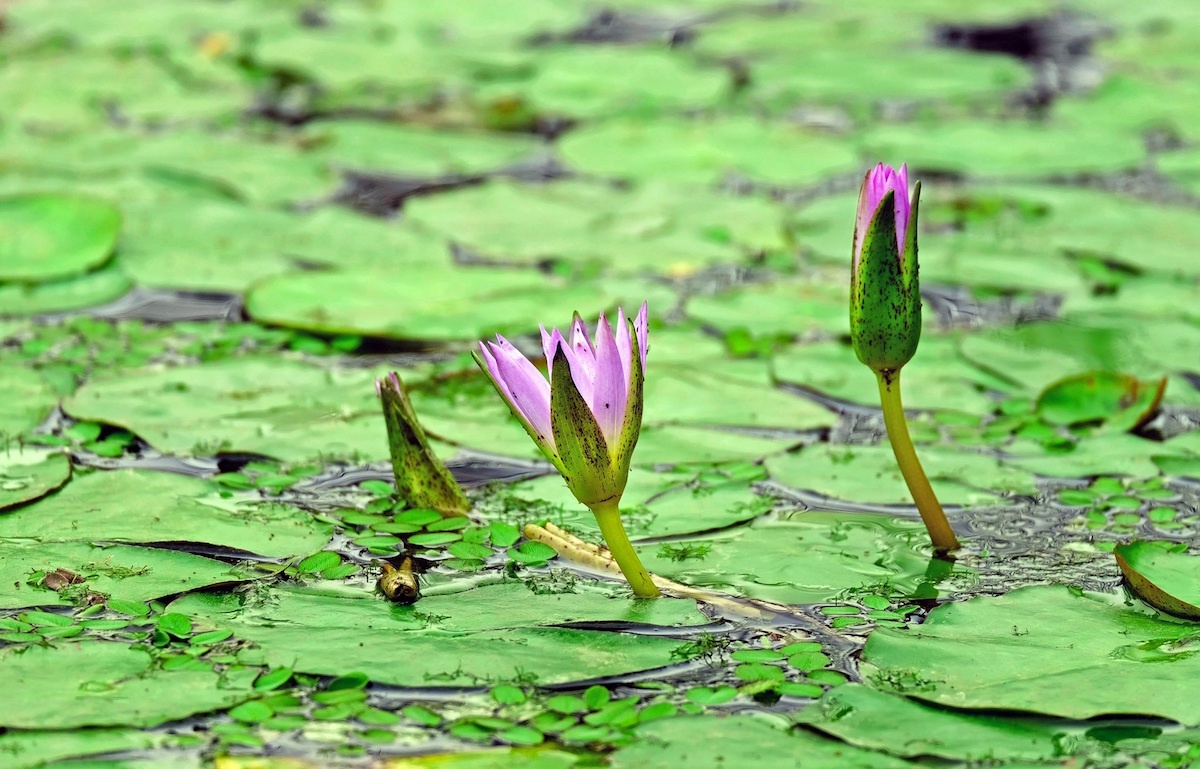If you met me 10 years ago, you probably would have thought I was pretty scattered. You’d likely have noticed my fiery temper and the hurried, anxious way I’d do things. When spending time with me, you’d quickly pick up on the fact that I was never really present with you but distracted, instead, by my racing thoughts or the items in my mental to-do list. You might have—as many people in my life at that time did—described me as being “all over the place.” You would have seen that I didn’t know what I wanted and had no idea what I was doing with my life. If you were particularly intuitive, you would have recognized that I was lost and disconnected, functioning on autopilot most of the time. You would have known that I felt insecure and unfulfilled, completely uncertain about my future.
When I write about myself 10 years ago, it’s as if I’m writing about a total stranger. I no longer recognize or resemble that disconnected woman with her head in the clouds, rushing through life with no sense of direction. It’s hard to put into words how grateful I am for finding a path to clarity—a path that altered the course of my life completely. And when I think about what it took to get from where I was then to where I am now, I can’t help but smile at the simplicity of it.
What I learned back then that guided my journey from chaos to clarity was the practice of doing nothing. The formal term for this practice is zazen, the sitting meditation practice in Zen Buddhism. Through this practice I learned how to shift from a state of doing to a state of being, stilling my mind and grounding my awareness in the here-and-now. I learned how to extend my practice to all areas of my life by focusing my attention on the present moment and being with my experience as it unfolds. This simple practice of non-doing created a radical shift in my presence and personality. It also inspired me to become a therapist who incorporates Eastern principles and traditions into my work with clients.
As a mindfulness based psychotherapist and coach, I’m committed to supporting my clients in cultivating awareness and getting grounded in the present moment, the only place where life is happening. When my clients begin to adopt simple mindfulness practices into their lives—such as allowing themselves to experience emotion or paying attention to the small changes they’re making—they quickly begin to experience their lives differently. Their relationships with themselves and others begin to transform, and they get inspired to create solutions for the problems that brought them to my office.
I’m regularly stunned by how much becomes possible through the astonishingly simple practice of being still and doing nothing. I’m amazed by how much power there is in a single conscious breath. In my work and my life, I’m committed to exploring the potential of mindful awareness and sharing what I learn with others—including you!
If you’ve ever been disconnected or dissatisfied with your life and unsure what to do about it, this practice is for you. If you’ve ever struggled to concentrate or sit still, this practice is for you. If you’ve ever felt detached from yourself and the people around you, this practice is for you. If you’ve ever thought that life is moving too quickly and you don’t know how to slow it down, this practice is for you. If you’ve ever wanted to explore your potential and the possibilities that exist for your life, this practice is for you.
The most beautiful thing about mindfulness and meditation is that you can practice anytime, anywhere—and now is as good a time to start as any! So before you close this page, give yourself the gift of a mindful moment.
Focus your eyes on a nonmoving object (not on the phone or computer screen) or allow them to gently close. Begin to shift your awareness to your breath. Focus on the sensation of breathing, perhaps finding a spot in your body where you’re most aware of the breath—it might be your nostrils, or your belly, or your chest. Breathe for a couple of moments with your attention fixed in this way. Any time a thought comes in or something around you tries to pull your focus away, gently bring yourself back to your breath. Do this for a few inhales and exhales. Then set an intention to carry this practice with you throughout your day, coming back to it—if only for a few breaths—any time you want to get centered and connected again.
If you’re eager to discover where else this practice can take you, call me for your free 20-minute consultation (305-814-4863), and let’s start exploring what’s possible!


